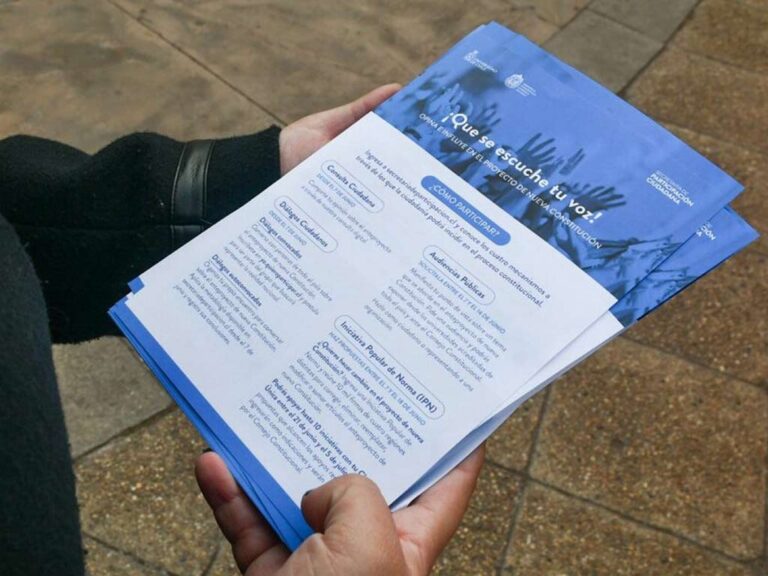The draft was prepared by the Constitutional Council and will be submitted to a referendum on December 17th.
The Constitutional Council in charge of the constitutional draft was elected on May 7th during elections where voting was compulsory. The winner was the far-right Republican Party, which can be considered a paradox, as the party had opposed the Agreement to move towards a Constitution that would replace the one imposed by the dictatorship of Augusto Pinochet in 1980.
The Secretariat for Citizen Participation (SPC) is in charge of the process, and the University of Chile and the Pontificia Universidad Católica are responsible for it.
According to the SPC, more than 1,300 Popular Initiatives for Standards were received during the period, allowing the population to organize and propose amendments or modifications to the draft.
The proposals must have the support of more than 10,000 people to be discussed by the Constitutional Council, however, only five, dealing with pension savings, defense of animals, respect for the activities that give rise to the identity of Being Chilean, the reinforcement of the police and the hiring of officials for professional skills and not for contacts, achieved this requirement. Others, such as labour, sexual and reproductive rights, the universal health system and access to decent housing, were left out of the debate.
The process arouses little enthusiasm, and according to surveys, it is likely that the bill will be rejected in the plebiscite on December 17th, just like the previous one, which was rejected on September 4th, 2022.
According to the most recent poll by the Pulso Ciudadano firm, corresponding to June, 23.9 percent of Chileans would vote against the bill, 17.2 would approve it, 13.1 would annul it or vote blank, and 36.7 do not have a defined position.
llp/lam/car









